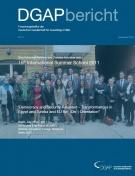Since the toppling of presidents Hosni Mubarak and Zine el Abidine Ben Ali, people in Egypt and Tunisia are looking for the right path to a societal and political rebirth. The current historic changes bear a distinct chance that these countries will make essential steps on a path that could lead to genuine democratization. But transformation processes are non-linear, they produce many irritations, frustrations, and difficulties, and hence, societies in Tunisia and Egypt are confronted with numerous challenges and are engaged in a search process for answers to many complex, albeit decisive questions. For decades the two countries faced political stagnation. The whole system was dominated by one ruling party and a powerful president surrounded by an elitist entourage. Political life was characterized by many deficiencies: there were no free and fair elections, no clear separation of powers, no independence of the judiciary, limited freedom of the press and the formation of new political parties was suppressed. In addition to these grave political deficits (with a difference of degree in Egypt and Tunisia) and the fact that followers of the old regime are attempting to sabotage the transformation process, both countries face huge social and economic problems that will certainly increase the complexity of the transitional phase. Socio-economic problems range from a large number of people living in extreme poverty to unemployment, the lack of decent social security and health schemes, and a very high level of corruption and nepotism. These pressing socio-economic issues need also to be addressed immediately with short- and long-term policies if the transformation process is to bear fruit.
Historic shifts in Egypt and Tunisia are received in the West, including Germany and the EU, with very mixed feelings: on the one hand there is surprise followed by admiration at the power and courage of the Egyptian and Tunisian people who defied the most brutal means of repression and decided to speak up and fight for their most basic rights and for a regime change. They completed an essential step, namely the removal of the despotic rulers and part of their corrupt entourage, in what the EU had been preaching for the past decade: democratization of Arab countries. The other side of these developments is tremendous worry on the West’s part around its outcome, the new forces and actors it will produce, the degree to which genuine democratization will take place, the wave of migration that swept over Europe, and implications of all these developments for stability and security in the region and Europe. Self-doubts about EU’s and Germany’s politics and policies towards despotic Arab regimes are equally raised and a process of examination and reorientation is now in place. Whether this will result in more effective policies remains to be seen. The EU wants to and certainly should, given the high stakes of happenings in its Southern neighborhood, play an active role as a partner—if asked by the other side—in these transformations. Given the strong presence of German development cooperation within the two countries, Germany equally shoulders a responsibility to assist and support. There is deep disappointment and a waning of credibility, however, in the Arab street as a result of Western countries’ double standard policy towards authoritarian governments in the region and their hesitation in supporting the revolutions right from the start.
Egypt and Tunisia are facing drastic changes and are confronted with challenges of great magnitude, and the EU is reassessing and reorienting itself to the new realities. Successfully coping with these developments is decisive for security and stability within these countries, within the region, and in Europe. It was precisely these political and economic deficits mentioned above that led to an escalation and an open conflict in the first place. The complexity and at the same time distinctiveness of these developments require dialogue, debate, understanding, but also cooperation and mutual support. DGAP’s 15th International Summer School offered a platform for such a debate and for an exchange among young potential policy makers, addressing some of the most crucial issues currently facing Egypt, Tunisia, and the EU. Twenty-eight young advanced students and recent graduates from Egypt, Tunisia, Morocco as well as Europe and Turkey came together for twelve days in Berlin to interact, debate, understand, learn, and to get connected.
The specific aims of the International Summer School 2011 were to offer a space for learning and for an exchange of knowledge and experience related to the current transformation processes as well as a sensitization for appropriate and effective policies and the development of joint solutions. The Summer School equally allowed for an intercultural dialogue to increase understanding and trust between young potential policy makers from Arab countries, the EU and Turkey through an exchange about political and societal developments in the respective countries and a sensitization for interests and needs of the different sides. Finally, it supported a pluralistic, tolerant and respectful debating environment and enabled participants from various backgrounds to establish a network of high caliber future actors.


